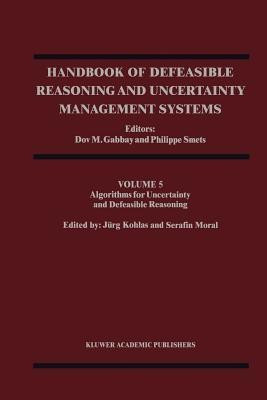Handbook of Defeasible Reasoning and Uncertainty Management Systems(English, Paperback, unknown)
Quick Overview
Product Price Comparison
Reasoning under uncertainty is always based on a specified language or for malism, including its particular syntax and semantics, but also on its associated inference mechanism. In the present volume of the handbook the last aspect, the algorithmic aspects of uncertainty calculi are presented. Theory has suffi ciently advanced to unfold some generally applicable fundamental structures and methods. On the other hand, particular features of specific formalisms and ap proaches to uncertainty of course still influence strongly the computational meth ods to be used. Both general as well as specific methods are included in this volume. Broadly speaking, symbolic or logical approaches to uncertainty and nu merical approaches are often distinguished. Although this distinction is somewhat misleading, it is used as a means to structure the present volume. This is even to some degree reflected in the two first chapters, which treat fundamental, general methods of computation in systems designed to represent uncertainty. It has been noted early by Shenoy and Shafer, that computations in different domains have an underlying common structure. Essentially pieces of knowledge or information are to be combined together and then focused on some particular question or domain. This can be captured in an algebraic structure called valuation algebra which is described in the first chapter. Here the basic operations of combination and focus ing (marginalization) of knowledge and information is modeled abstractly subject to simple axioms.


